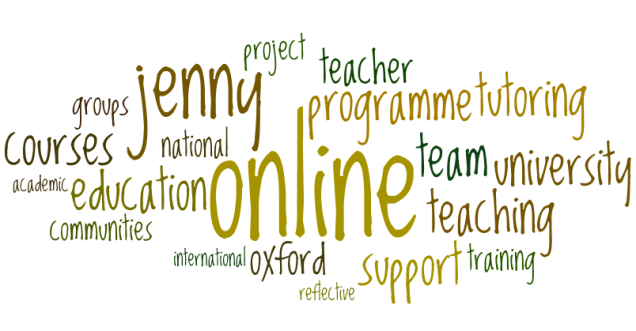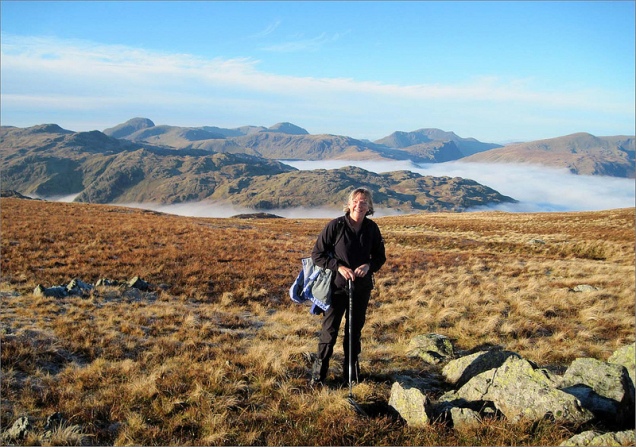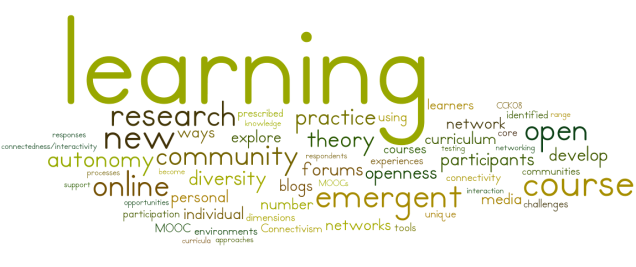
21-04-19
I have now retired from paid education consultancy and independent educational research, although if an interesting research project came up, I might not say ‘no’ to it. I am continuing to blog about topics that interest me, but it is fair to say that my interests are changing.
27-03-18
I have been thinking for a while that it is time to update this profile page, but I will leave the text that I wrote in 2013 where it is for now.
Although 5 years have passed since I wrote the text below, it is only in the last 6 months or so that I have come to feel that it is no longer an accurate description of who I am.
About a month ago I realized that I no longer feel enthusiastic about taking on consultancy work. As such, I have taken the descriptor, independent consultant, off my email signature. I am now in my eighth decade and life seems too short to work on things that I no longer feel passionate about.
But, for now, I will keep referring to myself as an independent researcher, since I have co-authored and published a paper this year. I thoroughly enjoyed working on this paper and hope it won’t be the last paper I work on, but I won’t be too disappointed if it is.
With the realisation that my years ‘are numbered’, I am keen not to waste time on things I am not interested in and to remain open to new learning opportunities; these currently lie in philosophical subjects such as epistemology, ethics and philosophical literature. I closely follow the work of Iain McGilchrist and Stephen Downes, both of whom have influenced my thinking. I have realized that at this stage of my life, art, music, the natural world and interpersonal relationships are all becoming increasingly important. This, I think, relates to what Iain McGilchrist refers to as the need for an embodied life.
I have worked so hard for so long as an educator, that it feels strange to recognise that I am in a period of identity change, but I did update my profile photo at the beginning of this year, so that is a reasonable likeness of me as I am now!
Thank you for visiting my blog.
Jenny
21-04-13. Welcome to my blog.
This is a Wordle of my Linked In Profile 
It is pretty accurate in describing where I’m coming from although ‘Oxford’ does not mean that I live in Oxford or went to Oxford University, but I have worked for both Oxford and Oxford Brookes Universities in my capacity as an independent education consultant.
I live in Cumbria, UK and love walking on the Cumbrian fells.
I am also an active independent researcher. This is a Wordle of the Abstracts from my published papers, which again is surprisingly accurate. As far as possible I publish in open journals. I have listed my publications here on this blog. See Publications
I can also be found on Flickr Twitter and LinkedIn.
Thanks for visiting my blog.
Jenny


Dear Jenny Mackness,
I’m a student from austria, and I’m currently working on my master thesis about social media and learning at higher education.
Unfortunately, I didn’t found any contact of you, so I try this way. 🙂 I would like to ask you some questions if you just could contact me on my blog (http://meandsocialsoftware.wordpress.com/) or per mail (pia_r@gmx.at).
I’m really looking forward to hear from you,
br
Pia
Pia – I have replied to you by email. Please let me know if you don’t receive it.
Jenny
Dear Jenny,
I’m sure you don’t remember me, but (I’m 99% sure) you were my year six teacher at St. Thomas’ School, Kendal in 1995-1996.
In the 16 years since then I read music at Cambridge and am now working at the Royal College of Music in London, where I teach students about new technology and help the College make use of it too.
I’m really pleased I’ve found your site, and I certainly have a lot of reading to do. Last year, both inspired by http://www.khanacademy.org and depressed by what seems to be a reduction in exposure to music education in the UK – I started an experiement at http://www.daveconservatoire.org, producing online videos and exercises. I’ve been really encouraged by the response and had around 4000 “students” in December.
I would be interested if you had any advice or feedback as I attempt to turn the site from a series of videos and exercises into something more dynamic and responsive to users. This is no replacement for a living breathing teacher, and I’m still experiementing with the right style for the teaching (I think I need to be much more informal and conversational), but I really see the value of (and enjoy!) producing resources like these for teachers to use or for those who aren’t fortunate enough to have access to one!
With best wishes,
David Rees
Hello David – Wow! What a blast from the past! I am so thrilled to hear from you and not at all surprised that you graduated from Cambridge, and very interested that you ended up choosing music.
I am this week in Chennai in India, so would rather wait till I get home in the middle of next week, before replying to you more fully. I would certainly be very interested to talk to you about your online work and discussing possible developments.
My email address is jenny.mackness@btopenworld.com. Could you send me your email address?
Really looking forward to catching up with you.
Jenny
Dear Jenny Mackness,
Your blog looks very interesting. I am currently living and teaching in the UK and have started to use the internet to produce educational resources (I have been using moodle at school for a few years now). I have also just published a book called Introduction to Verbal Reasoning: Tips and Techniques.
Your son, Phin, kindly suggested that I contact you. I am glad he did, as I can see the wealth of knowledge that you have in online learning.
Kind regards,
Christine.
Hello Christine – many thanks for contacting me.
I am intrigued by what you are doing and I wonder how many other teachers are going down this route. I would love to know more about how you see the future of this kind of work. With all the recent developments in open courses and open educational resources, the flipped classroom and so on, many teachers must be wondering about how their careers might develop.
Congratulations on the publication of your book.
If I can help you in any way with what you are doing, please don’t hesitate to get in touch again. Phin would let you know how to contact me by email.
Best wishes,
Jenny
Jenny
Not sure where to post this but I thought of you re a post on CP2 when you were pondering the relationship between connected and social learning. I highlighted one sentence in the middle of the article that shed some light on the topic for me.
http://socialtheoryapplied.com/2014/01/15/self-pedagogical-wittgenstein-pedagogy/
OK it won’t let me show highlight so here is the sentence: “Notions which place the self and the subject as the fundamental concerns of education become tenuous when we understand the self and discourse as non-separate entities” So, as you kind of inferred in that CP2 post, social learning related to discourse is one way to think about it.
Hope this makes any sense whatsoever!
Brenda Kaulback
Hello Jenny,
My name is Maxine Griffiths AKA @now_teach_this. I am currently an AHT in Jersey and I have spent the last year tracking my journey as a connected educator, specifically on Twitter and its impact on my practice, I am currently studying for an MA in education which I am enjoying every second of. Twitter is the focus of my critical reflection, how it has affected my practice, my students and the community and my colleagues. Could I ask you how it effected you as an educationalists? What influence if any has it had on your Practice?
Kind regards
Maxine Griffiths
Jersey C I
Hi Maxine – yes of course. Happy to help. Give me a day or two to think about it and I’ll get back to you. I have followed you on Twitter 🙂
Jenny
Hi Jenny
I work for Queen Elizabeth’s Foundation for Disabled People (QEF) and we’re preparing a capital appeal to raise money for a very special building.
The new centre will enable us to undertake a significant change to the focus of our work, which we believe will deliver a greater number and better solutions to more children and young people with disabilities. We want to use our centre as a hub of expertise to bring together as wide a range of stakeholders as possible, including children and adults with disabilities.
We know by providing an accessible and practical work space, the very best solutions can be created. Our sister charity MERU can then create prototypes, undertake market testing and produce suitable quantities for the sector. We believe this innovative approach provides a unique opportunity for practical solutions for people with complex disabilities.
In order to try and illustrate this in the appeal I’ve been looking for photos from FabLab and found a collaborative type of image in your page (https://jennymackness.wordpress.com/2015/06/20/3486/), 2nd photo from the top.
I was wondering if it would be OK to use the image? If this is not your remit, who can I contact, please?
Many, many thanks
Hi Hanne,
Thanks for contacting me and telling me a bit about the Queen Elizabeth’s Foundation for Disabled People.
You are very welcome to use the photo. Perhaps you could attribute the photo to me and mention that it was taken at Liverpool John Moores University’s FabLab.
I hope you will be successful in raising the money you need to build the new centre for disabled people.
Best wishes,
Jenny
Many thanks, Jenny. We’ll see how much space we have for attributions but I’m sure we can, at least, name you!
Many, many thanks again!
Jenny!
I sooooo appreciate your delightful, meaningful, thought-provoking series about Iain McGilchrist and his divided brain book. I’ve been reading it and your posts helped me get a deeper felt understanding of certain aspects of Iain’s so-significant insights… and a more personal glimpse into him as an individual, as well. (I esp. appreciated what you shared, that he had disclosed, about his writing process.)
Thank you so much. I am a teacher, too, and am intrigued to learn more about your work. I’m all the way in the States (I live in Boise) but it’s a treasure to stumble upon a sort of kindred spirit in this technologically interconnected world. (So meaningfully interconnected in so many other ways, also.)
Best wishes! Hope we will end up connecting in the future.
Thank you again.
Heidi Juniper
Thank you so much for taking the time to send me this message Heidi. It is good to know that you have found the posts on Iain McGilchrist useful. His 4-day course will run again next year, if you can make the trip from the States. See http://www.field-field.com/courses/iain-mcgilchrist-exploring-the-divided-brain/ – for details.
There was a couple from the States, Rick and Maria, on this year’s course – see their website https://zentangle.com/
Hi Jenny – I’m also a follower of iain McGilchrists work. I am a recently retired science teacher. I’d like to know your thoughts on paradoxical thinking and the role it might play in education? Cheers Bruno Annetta
Hi Bruno – this is a great question and one which you should probably put to Iain McGilchrist himself rather than to me. Whilst you won’t find him on Twitter or Facebook, or the like, I have found that he does respond to questions that interest him by email, and paradoxical thinking is definitely a topic of interest to him. A couple of years ago at the end of a course I attended, he gave us examples of how life is now full of paradoxes and asked us to send him any more we could think of. Here are some of the ones he mentioned at the time, which I listed in this blog post https://jennymackness.wordpress.com/2016/09/01/exploring-the-divided-brain-trying-to-be-sane-in-an-insane-world/
– In wanting a paperless technological environment we use more and more paper
– In trying to improve education through dictating the curriculum we discourage free thinking
– The overuse of antibiotics results in bacteria that we can’t control
– In trying to protect our children we make them risk averse
– In striving for equality we create inequality
You can see that he has already mentioned some paradoxes that have implications for education, and you will know that in The Master and his Emissary he has quite a lot to say about paradox (p.137-140). On p.140 he writes,
‘Paradox means, literally, a finding that is contrary to received opinion or expectation. That immediately alerts us, since the purveyor of received opinion and expectation is the left hemisphere. I call it a sign that our ordinary ways of thinking, those of the left hemisphere, are not adequate to the nature of reality.’
If we accept that reality is paradoxical and that we need both precision and vagueness, restriction and openness, ambiguity and clarity, uncertainty and certainty (a both-and rather than an either-or mentality) (https://jennymackness.wordpress.com/2016/09/02/exploring-the-divided-brain-creativity-paradox-and-negation/) then this must have implications for education, don’t you think? Our curricula tend to shy away from these paradoxes, presenting ideas as ‘known’ and ‘fixed’, ‘testable’ and ‘measurable’, with ever increasing emphasis on STEM subjects and ever declining emphasis on the humanities. Recently I find myself thinking more and more that there is a real need for more study of philosophy in education.
On a course of McGilchrist’s that I attended in 2015, Ian talked about negative capability – the capacity to be uncertain and think beyond presuppositions, and tolerate ambiguity, rather than close things down (see
https://jennymackness.wordpress.com/2015/03/29/the-divided-brain-and-the-power-of-no/) Maybe this is the direction in which education needs to go.
So what should we do? In 2016 I wrote this: Iain’s view is that we need a call to arms to effect cultural change; change from both the bottom up and the top down, change of the hearts and minds of people. We need to recognise the nature of the problem, be able to see patterns, question things, invert things to consciously seek a different perspective and change the ways in which we spend our time, allowing ourselves more space and quiet. But the left hemisphere has a stranglehold on the means of communication of the right hemisphere (p.374, The Master and his Emissary). It is hard to articulate the right hemisphere’s point of view. (https://jennymackness.wordpress.com/2016/09/01/exploring-the-divided-brain-trying-to-be-sane-in-an-insane-world/ See also https://jennymackness.wordpress.com/2014/11/18/the-divided-brain-implications-for-education/)
For me Heraclitus’s belief in the unity of opposites, that everything fits together in a relationship of tension, that oppositional forces enrich, might be a good place to start when thinking about how education might need to change.
Thankyou so much for your question which I think is so pertinent to education today. If you don’t mind, I am going to copy it and my response to my blog post about the implications of Iain’s work for education – https://jennymackness.wordpress.com/2014/11/18/the-divided-brain-implications-for-education/ – where maybe more people will see and think about your question.
Jenny
Hi Jenny
Wow … what a great response! Thoughtful, detailed and quick! I’m more than happy for you to copy my question into your blog. I’ve read quite a bit of your blog so far and feel that I have found a kindred spirit. I will email Iain McGilchrist with regards to paradoxical thinking.
So that you know more about me, have a look at the following links:
Is paradoxical thinking a solution to the human condition? – https://www.youtube.com/watch?v=S1d3rBplZGc&t=9s
I created this video in an effort to “work from the bottom up” (as Iain states) … to affect change. Then I created the follow up video in an effort to present an example of how I use it. And it was very difficult to do and as your quote from I. Berlin states: I wish to convey something immaterial and I have to use material means for it. I have to convey something which is inexpressible and I have to use expression. I have to convey, perhaps, something unconscious and I have to use conscious means. I know in advance that I shall not succeed, and therefore all I can do is to get nearer and nearer in some asymptotic approach; I do my best ….
Paradoxical thinking – a practical example – https://www.youtube.com/watch?v=y8GSkkS5lj8
And here is an example of my art and efforts to impact education:
The meiosis square dance – https://www.youtube.com/watch?v=eaf4j19_3Zg&t=36s
It is a video I created to make learning fun and easy. I used paradoxical thinking techniques in making it. I didn’t put it into Youtube … a teenager from the United States did … I just haven’t done anything about taking it down. Why? That’s another post for another time.
I found it interesting that paradoxical thinking is being used in big business.
See the following link:
Paradoxical thinking and plate spinning – https://www.youtube.com/watch?v=E7KQ8SiLMcI&t=29s
Feel free to post my response into your blog as well … if you think it may cause others to think more about paradoxical thinking as this is definitely my aim.
Cheers
Bruno Annetta
Hi Bruno, Thank you so much for sharing your videos with me, which I have really enjoyed watching. You present your ideas so clearly. I have reposted all this into my implications for education blog – https://jennymackness.wordpress.com/2014/11/18/the-divided-brain-implications-for-education/.
I hope you are successful in contacting Iain McGilchrist and sharing your videos with him. It will be very interesting to see what more he has to say about paradox and paradoxical thinking in his new book, although given that it took him 20 years to write The Master and his Emissary, I don’t think the new book will be out any time soon 🙂
I am in the throws of preparing for a trip to Rome for a few days, but I hope to come back to thinking further about your videos when I get back.
Many thanks,
Jenny
Hello! I was just reading your blog from America. Do you know how seldom dialectics are discussed in this country? Seriously, I think Hegel is only discussed in Hegel class and one offshoot of psychotherapy focuses on it somewhat incorrectly. 🙂
Hello Robert. Thank you for taking the time to comment here. I have only ever visited America four times, and each time for tourism purposes, although one of those was combined with a workshop I attended run by Etienne Wenger on communities of practice in Grass Valley, Sacramento. So I haven’t had the opportunity to try discussing topics such as Hegel’s ideas.
I have only recently come across Hegel’s ideas via the work of Iain McGilchrist. Evidently Hegel is one of McGilchrist’s favourite philosophers, so I thought I ought to try and find out why.
Do you know McGilchrist’s work? His book, The Master and his Emissary: The Divided Brain and the Making of the Western World is my most read book of the moment. He references Hegel quite a lot in the book. If you haven’t read the book, you may find it interesting – but it is long and dense. I can point you to some introductory texts if you need them.
Jenny
Greetings! I located an email address for you elsewhere on this blog, but was not successful in my attempt to contact you. I’ve read several of your posts as well as publications with great interest and was hoping it might be possible to communicate in the near future. If you are amenable to that, kindly send an email to MGO@MorenikeGO.com at your earliest convenience. Thank you very much! Morénike
Hello Morénike. Thank you for your message. I’m sorry. I probably missed your email because I do not respond to addresses that I don’t recognise. Please try again, or let me know here what your inquiry is about. Best wishes, Jenny
Hi,
I’ve so much enjoyed your website in the past, and had forgotten about it. In looking up the work of Csikszentmihayli (almost did my psych doctoral dissertation on him some 20 years ago) and McGilchrist, I quite delightfully returned to your writings.Very down to earth, embodied, real.
I love your comment about getting to a point in your life where you want to focus only on what matters. Jan (my wife) and I are finishing up several years of work on online courses. After a few more months of marketing, I’m going to switch to what I’ve had in my deepest heart since my teen years (many moons ago – I’m nearing the end of my 7th decade).
I have a friend of many years who is a physicist interested in the yogic aspects of life. We had been out of touch for awhile, and i heard recently he wrote a masterpiece of a book (far beyond anything even Iain M has dreamed of). He sent me a copy and indeed, I would say it’s among the best I’ve ever seen (in nearly 50 years) on science and spirituality.
So I sent him a PDF of our book and he was astonished (as was I) to see how much we are working along similar lines.
We’ll be starting a kind of impromptu, improvisatory collaboration this summer or fall, aimed at helping support people who are seeing through the delusions of physicalism (“the matter with things,” as McGilchrist poetically puts it). Jan and I are even thinking of learning to draw so we can create colorful playful animations to et past people’ intellectual defenses.
Seems ever more worthwhile as the world collectively loses its mind (if it lost its mind and, rather than “coming to its senses…>” “came into its soul” – that might not be a bad thing!
Anyway, no questions, just a little sharing and appreciation of your writing and ever renewed playfulness.
Thank you Don for your interesting comments. I wish you well in your new venture. It sounds as though you will be busy 🙂
Thanks Jenny for sharing your insightful thoughts. As a teacher myself I wonder what your view is on AI in the classroom. I was recently introduced to an AI tool
by my school and I find it quite useful in terms of saving my time.
And thank you for your comment Rajiv. I have been retired for a while now and it’s a long time since I have been in a classroom. I haven’t been following AI developments, so I’m afraid I do not know a lot about this.
I can see that it would be helpful to have a tool that saves teachers time and allows them to focus more on their pupils’ learning and less on administration and paperwork. But I would hope that any tool that is used doesn’t lead to teachers becoming lazy or less critical in their thinking. I remember working with a young teacher when schemes of work were introduced in the UK many years ago, i.e. lesson plans. I remember the teacher saying to me that she no longer needed to think or be creative. She only had to pick up the file and follow the instructions!
But we all use AI probably without fully realising the extent to which we do this. Stephen Downes wrote a good article about this – https://www.linkedin.com/pulse/how-i-use-ai-stephen-downes/
If you don’t already know of Stephen’s work, his newsletter is often full of information about how AI is currently being used – https://www.downes.ca/index.html
Best wishes for your teaching and grading 🙂
Jenny